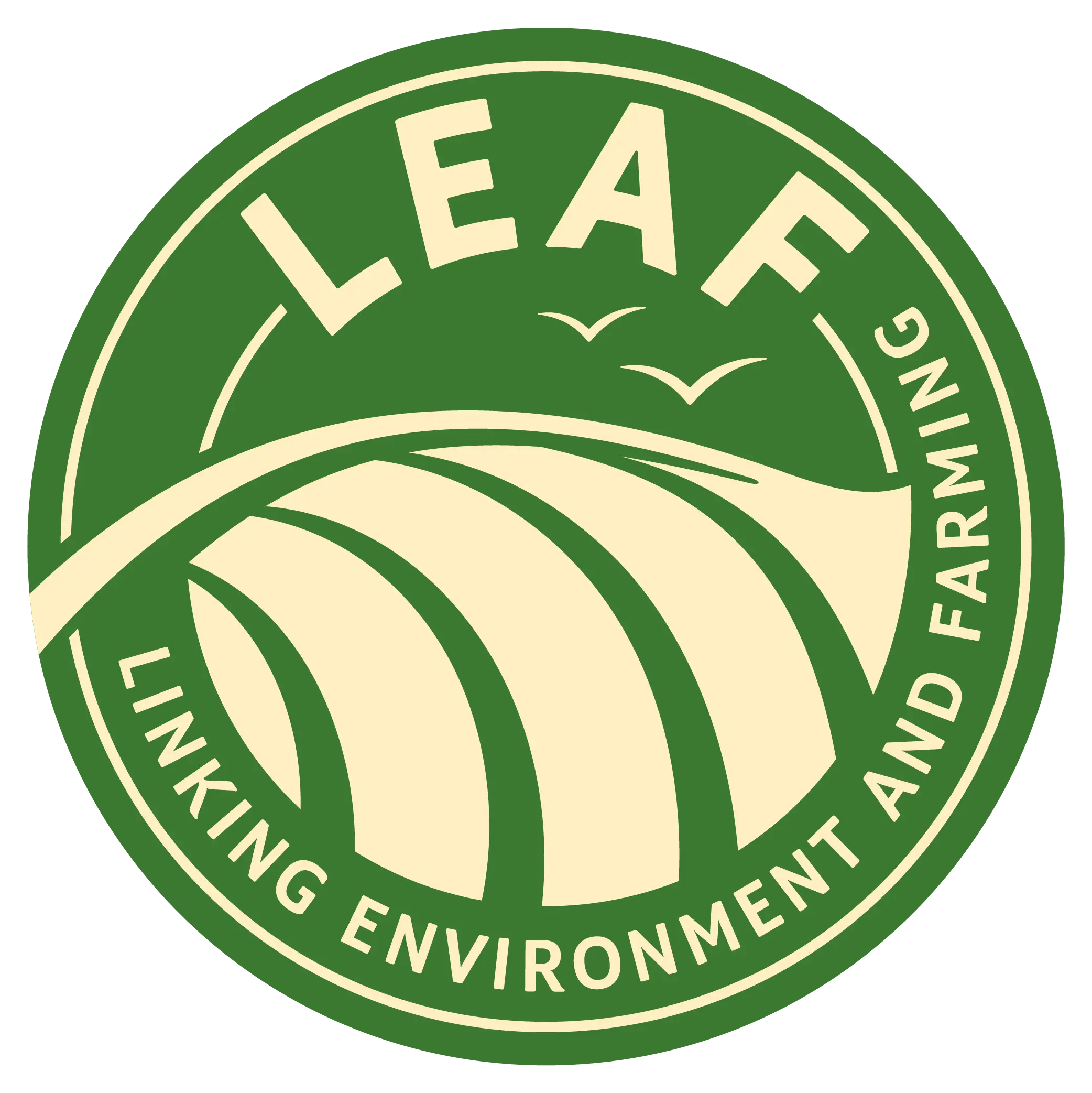- About Integrated Farm Management
- Our LEAF Network of Demonstration Farms & Innovation Centres
- Resources
- LEAF Sustainable Farming Review
- LEAF Endorsed Advisors & Consultants
- Our Projects & Partnerships
- Nature Based Solutions to Climate Change
- Beacons of Excellence
- Resilient & Ready
- Accelerating & Demonstrating the Journey to Net-Zero
Integrated Farm Management
Integrated Farm Management (IFM) is a site-specific farm business approach that uses the best of modern technology and traditional methods.
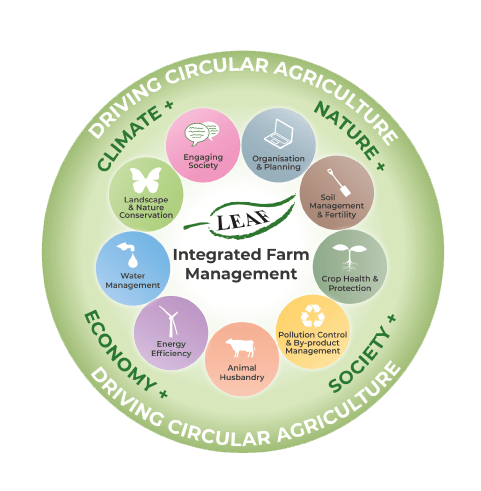
IFM is made up of nine sections, which together address the entire farm business. Each of the nine sections is interrelated and an understanding of how they work together is essential for the effective implementation of IFM.

Organisation and Planning
Organisation and Planning
Good organisation and planning is key to IFM. As a starting point it is important to identify the short and long term objectives of the farm business, reflecting on the key question of where do I want my business to go?’

Soil Management and Fertility
Soil Management and Fertility
Soil is the basis of all agricultural production and the conservation and improvement of this valuable resource must be of the highest priority in the adoption of IFM. This allows produce to be grown on healthy and biologically active soil with an optimum level of organic matter, a good physical structure, chemical balance and sufficient fertility.

Crop Health and Protection
Crop Health and Protection
IFM uses and encourages continual improvement in pest control measures that have minimal impact on the environment and human health and which promote sustainability and profitability. A well established and managed crop will be more competitive with weeds, more resilient to attack from pests and diseases and should require fewer plant protection products.

Pollution Control and By-product Management
Pollution Control and By-product Management
Well organised pollution control and by-product management will help avoid pollution, save money and plays an important part in protecting water, energy, biodiversity and soil management. In many cases farm 'wastes' are a valuable resource if used appropriately.
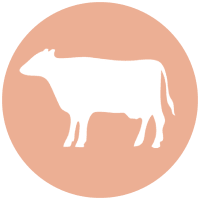
Animal Husbandry
Animal Husbandry
IFM requires that consideration is given to the way decisions are made on the whole farm. Not only does this include animal welfare, grassland, forage and crop management, but also the attention to detail demanded to ensure sound animal husbandry techniques, environmental responsibility and an economically viable farming business.
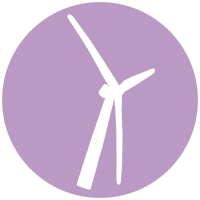
Energy Efficiency
Energy Efficiency
Energy is often a significant on-farm cost and so requires constant monitoring. Careful use of inputs, appropriate tillage, reduced reliance on fossil fuels and striving for optimum instead of maximum yields will all help improve energy efficiency and contribute towards maximum return in the long run.
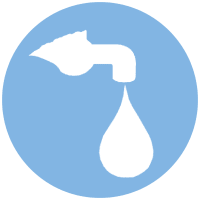
Water Management
Water Management
Water is an important resource which has a financial and environmental cost to farm businesses. Better and more effective water management is at the heart of LEAF's approach to IFM. Managing water wisely as well as assessing and enhancing the efficiency of on-farm water use saves money and helps plan for future needs.

Landscape and Nature Conservation
Landscape and Nature Conservation
Landscape and conservation are becoming increasingly important in agriculture, and it is easy to be daunted by the amount of information available and by the proliferation of schemes, action plans and initiatives. It is important to remember that landscape and wildlife are like any other product of the farm; what is achieved depends on the starting conditions, the capability of the land and the work put in.

Engaging Society
Engaging Society
It is essential to communicate what you are doing and why to everybody who works on or around the farm, including the local community. Not only does it help them to better understand farming and the rural environment, but it also addresses their concerns, needs and expectations of the countryside and food production.
Economic performance
Environmental quality
Social health
Sustainable farming delivers a site-specific farming system supporting the integration of farm economic viability, the environment and society, over the long-term. IFM delivers more sustainable farming by contributing to economic performance, environmental quality and social health. It is also relevant to the fast emerging Natural Capital agenda, which looks to put a monetary value on the goods and services farmers deliver.
IFM is made up of nine sections, which together address the entire farm business. Each of the nine sections is interrelated and an understanding of how they work together is essential for the effective implementation of IFM.
Integrated Farm Management: A guide
Integrated Farm Management: A guide provides an overview and introduction to LEAF’s Integrated Farm Management to LEAF Members.
Related Articles
LEAF Network
The LEAF Network consists of LEAF Demonstration Farms, working farms committed to delivering and promoting sustainable farming practices and LEAF Innovation Centres — research establishments pioneering new approaches to push…
Go
LEAF Sustainable Farming Review
The LEAF Sustainable Farming Review is a practical, self-assessment tool to help LEAF members farm more sustainably. It helps monitor performance, identify areas for improvement and set targets for the…
Go
LEAF Marque
The LEAF Marque is an environmental assurance system recognising more sustainably farmed products. It is based on LEAF’s Integrated Farm Management (IFM) principles. All LEAF Marque certified farms are independently…
Go
